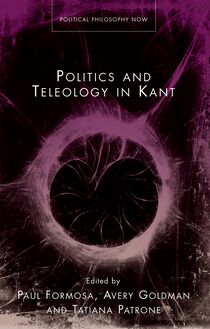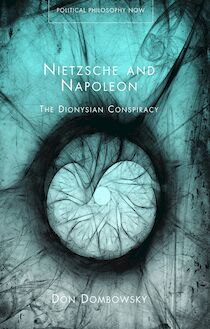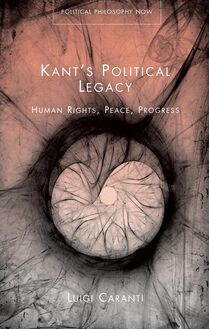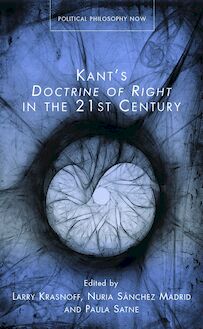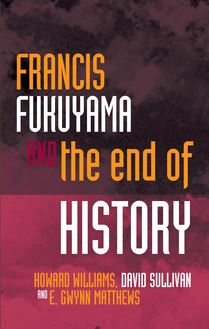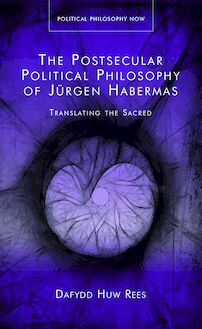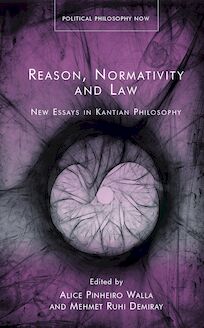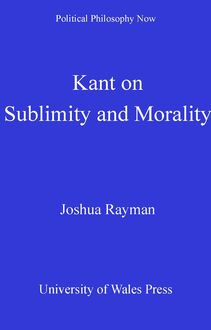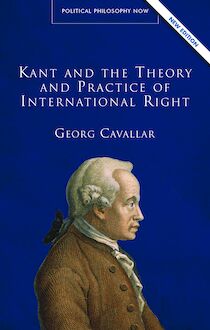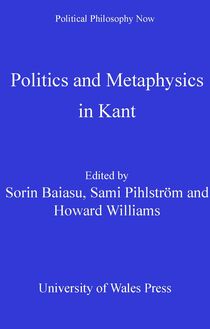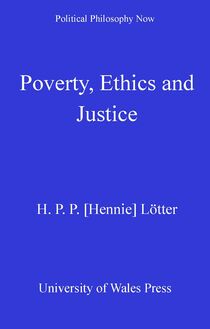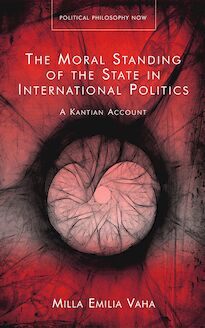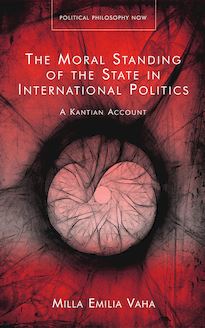-
 Univers
Univers
-
 Ebooks
Ebooks
-
 Livres audio
Livres audio
-
 Presse
Presse
-
 Podcasts
Podcasts
-
 BD
BD
-
 Documents
Documents
-
- Cours
- Révisions
- Ressources pédagogiques
- Sciences de l’éducation
- Manuels scolaires
- Langues
- Travaux de classe
- Annales de BEP
- Etudes supérieures
- Maternelle et primaire
- Fiches de lecture
- Orientation scolaire
- Méthodologie
- Corrigés de devoir
- Annales d’examens et concours
- Annales du bac
- Annales du brevet
- Rapports de stage
La lecture à portée de main
Vous pourrez modifier la taille du texte de cet ouvrage
Découvre YouScribe en t'inscrivant gratuitement
Je m'inscrisDécouvre YouScribe en t'inscrivant gratuitement
Je m'inscrisEn savoir plus
Vous pourrez modifier la taille du texte de cet ouvrage
En savoir plus

Description
Reacting against both the British Idealists and the logical positivists, Isaiah Berlin forged a new philosophy best described as post-Idealist. This philosophy was deeply informed by Kantian categories and methods, and conditioned by Vichian themes of historical and cultural variation. An advocate of pluralism without relativism, Berlin believed that it was possible to adopt and live by values, but he could not achieve moral certainty that our values are objectively preferable to all others. Like Collingwood and Oakeshott (and some neo-Kantians), Berlin believed that concepts matter and that they have a history; that human values are numerous and incommensurable; that rationalism in politics is dangerous; and that positivists’ hopes for rigorous social sciences are unrealistic. Interestingly, Collingwood and Oakeshott, both also candidates for post-Idealism, shared Berlin’s commitment to these themes. Ultimately, Berlin’s ‘Two Concepts of Liberty’ is perhaps best perceived as a critique of Bradley’s Ethical Studies.
Introduction
Chapter 1: The British Idealists
Chapter 2: Collingwood & Oakeshott: Post-Idealists?
Chapter 3: Concepts Matter: ‘Two Concepts of Liberty’ and F. H. Bradley
Chapter 4: Berlin and the History of Concepts
Chapter 5: Berlin and Cultural Pluralism1
Chapter 6: Berlin vs. Rationalism
Chapter 7: Berlin’s Philosophy of the Social Sciences
Chapter 8: Critical Appraisals
Sujets
Informations
| Publié par | University of Wales Press |
| Date de parution | 01 août 2022 |
| Nombre de lectures | 0 |
| EAN13 | 9781786838971 |
| Langue | English |
Informations légales : prix de location à la page 0,4700€. Cette information est donnée uniquement à titre indicatif conformément à la législation en vigueur.
Extrait
POLITICAL PHILOSOPHY NOW
Chief Editor of the Series:
Howard Williams, Aberystwyth University, Wales
Associate Editors:
Wolfgang Kersting, University of Kiel, Germany
Renato Cristi, Wilfrid Laurier University, Waterloo, Canada
Susan Meld Shell, Boston College, Massachusetts, USA
David Boucher, Cardiff University, Wales
Affiliate Editors:
Peter P. Nicholson, formerly of University of York, England
Steven B. Smith, Yale University, USA
Political Philosophy Now is a series which deals with authors, topics and periods in political philosophy from the perspective of their relevance to current debates. The series presents a spread of subjects and points of view from various traditions which include European and New World debates in political philosophy.
Also in series
The Moral Standing of the State in International Politics: A Kantian Account
Milla Emilia Vaha
Kant’s Doctrine of Right in the Twenty-first Century
Edited by Larry Krasnoff, Nuria Sánchez Madrid and Paula Satne
Hegel and Marx: After the Fall of Communism
David MacGregor
Politics and Teleology in Kant
Edited by Paul Formosa, Avery Goldman and Tatiana Patrone
Identity, Politics and the Novel: The Aesthetic Moment
Ian Fraser
Kant on Sublimity and Morality
Joshua Rayman
Politics and Metaphysics in Kant
Edited by Sorin Baiasu, Sami Pihlstrom and Howard Williams
Nietzsche and Napoleon: The Dionysian Conspiracy
Don Dombowsky
Nietzsche On Theognis of Megara
Renato Cristi and Oscar Velásquez
Francis Fukuyama and the end of history
Howard Williams, David Sullivan and E. Gwynn Matthews
Kant’s Political Legacy: Human Rights, Peace, Progress
Luigi Caranti
POLITICAL PHILOSOPHY NOW
Isaiah Berlin
A Kantian and Post-Idealist Thinker
Robert A. Kocis
UNIVERSITY OF WALES PRESS • 2022
© Robert A. Kocis, 2022
All rights reserved. No part of this book may be reproduced in any material form (including photocopying or storing it in any medium by electronic means and whether or not transiently or incidentally to some other use of this publication) without the written permission of the copyright owner except in accordance with the provisions of the Copyright, Designs and Patents Act. Applications for the copyright owner’s written permission to reproduce any part of this publication should be addressed to the University of Wales Press, University Registry, King Edward VII Avenue, Cardiff CF10 3NS.
www.uwp.co.uk
British Library Cataloguing-in-Publication Data A catalogue record for this book is available from the British Library.
ISBN 978-1-78683-895-7 e-ISBN 978-1-78683-897-1
The right of Robert A. Kocis to be identified as author of this work has been asserted in accordance with sections 77, 78 and 79 of the Copyright, Designs and Patents Act 1988.
The publisher has no responsibility for the persistence or accuracy of URLs for any external or third-party internet websites referred to in this book, and does not guarantee that any content on such websites is, or will remain, accurate or appropriate.
Contents
List of Abbreviations
Introduction
1 The British Idealists
2 Collingwood and Oakeshott: Post-Idealists?
3 Concepts Matter: ‘Two Concepts of Liberty’ and F. H. Bradley
4 Berlin and the Histories of Concepts
5 Berlin and Cultural Pluralism
6 Berlin versus Rationalism
7 Berlin’s Philosophy of the Social Sciences
8 Critical Appraisals
Notes
Bibliography
List of Abbreviations
AtC
Against the Current
C & C
Concepts and Categories
D & H
Darwin and Hegel
DPTSE
‘Does Political Theory Still Exist?’
FEL
Four Essays on Liberty
LLL
‘Lectures on Liberal Legislation’
NL
negative liberty
OHC
On Human Conduct
PIRA
Political Ideas of the Romantic Age
PL
positive liberty
RiP
‘Rationalism in Politics’
RoR
Roots of Romanticism
TCL
‘Two Concepts of Liberty’
V & H
Vico and Herder
Introduction
Berlin attributes to Bertrand Russell the belief that the deepest convictions of philosophers are not to be found in their formal arguments. Rather, their fundamental beliefs are like citadels to be guarded against the enemy with elaborate arguments, but ‘the inner fortress itself – the vision of life for the sake of which the war is being waged – will, as a rule, turn out to be relatively simple and unsophisticated’. 1
For Berlin himself this inner citadel is the belief that humans – as self-transforming beings capable of ends, as purposive beings – require liberty to shape their destinies in accordance with their own pluralistic values, with minimal societal or governmental coercion. 2 He made no secret of his liberal proclivities: ‘Fundamentally, I am a liberal rationalist.’ 3 Similarly, he said that ‘I was, and remain, an incurably sceptical liberal, a convinced gradualist.’ 4 While Berlin reminded us repeatedly that negative liberty (NL) is not the only value, clearly it held a special place among the stars in his moral heavens. 5 He wrote, for instance, that liberty, although not licence nor an easy achievement, is one value without which ‘all things wither’. 6 His liberal roots are beyond doubt and are on display in virtually every piece he wrote. 7
In ‘John Stuart Mill and the Ends of Life’, he provides one clear exposition of this core belief while describing John Stuart Mill’s account of liberty: ‘man differs from animals primarily neither as the possessor of reason, nor as an inventor of tools and methods, but as a being capable of choice, one who is most himself in choosing and not being chosen for; the rider and not the horse; the seeker of ends, and not merely of means, ends that he pursues, each in his own fashion’. 8
Liberty comes in (at least) two flavours, and Berlin clearly prefers one over the other. In his well-known essay ‘Two Concepts of Liberty’, Berlin offers reasons to prefer negative liberty (NL) over positive liberty (PL). His language in doing so was uncharacteristically strong. At one point, he called PL ‘a monstrous impersonation’; at others he wrote of a ‘magical transformation’ or again of ‘sleight of hand’. Against whom this was this onslaught directed? 9 It helps if we keep in mind Berlin’s reminders to us of his topic. In preferring NL to PL, he was not preferring laissezfaire capitalism over the social welfare variants. 10 Rather, Berlin reminded us that he, like Benjamin Constant, 11 is not employing the terms in that contemporary, colloquial way. 12 What is critically important is to identify the targets against whom Berlin was directing all of his fire-power to protect that inner citadel.
It was obviously not liberals like John Stuart Mill nor the creators of justifications for social welfare programmes like Hobhouse and Hobson. 13 Berlin provides a few telling examples: his named targets are the Idealists of the generations preceding his own. 14 ‘Hegel, Bradley, Bosanquet have often assured us’ that ‘by obeying the rational man we obey ourselves: not indeed as we are, sunk in our ignorance and our passions, weak creatures afflicted by diseases that need a healer, wards who require a guardian, but as we could be if we were rational …’ 15 He further identifies those who believe in Objective Reason like ‘the tough, rigidly centralized, “organic” state of Fichte …’ because they ‘certainly supposed themselves to be fulfilling, and not resisting, the rational demands which, however inchoate, were to be found in the breast of every sentient being’. 16 In short, the basic core of Berlin’s own beliefs was shaped in opposition to the Idealists of the generations preceding him. Indeed, what is frequently missed in discussions of ‘Two Concepts’ is that the target of this important essay was (arguably) Bradley’s Ethical Studies . 17 (See Chapter 3.) This, then, contributes to the central hypothesis of this work: that Berlin – and Collingwood and Oakeshott 18 – responded in rather predictable ways to the Idealists of the preceding generation.
This consequently becomes a clue that helps to reveal something that is missing – ironically – in most efforts at understanding and assessing Berlin’s corpus. This is ironic because Berlin thought of himself, not entirely accurately, 19 as a historian of ideas. 20 After he so carefully examined so many thinkers – Machiavelli, Montesquieu, Vico, Herder, Marx, Helvetius, Rousseau, Fichte, Hegel, Saint-Simon, Turgenev, and de Maistre, merely as a few examples – it is a telling piece of irony that commentary on Berlin has been predominantly focused on certain conceptual themes (like pluralism) rather than on the historical context 21 in which he developed his philosophy. 22
In the history of philosophy (and of political philosophy) it is commonplace to locate Aristotle as a thinker who followed and was influenced by Plato before him; the Romans are typically portrayed as descendants of the Greeks; after Hegel came Marx; after the doubts of Hume, Kant emerged to mitigate his scepticism; after Kant, Fichte and Hegel tried to improve upon the master. But little attention has been paid to the relationship of Berlin to the generations just before him. The task here is to ask in a systematic way ‘who came before Berlin and what is the relationship between them on the one hand and him and his contemporaries on the other’?
We know that Kant was a formative influence; in Ignatieff’s tapes, Berlin confirmed that the Kantian Rachmilevitch ‘was a dominant influence on me’. 23 He has told us that ‘Anglo-American philosophy and Kant formed me’. 24 (During Berlin’s formative years, the analytic school was not yet in command; the British Idealists and then the Realists were.) Kantian themes, especially analysis of concepts and categories of thought, appear with surprising frequency. 25 By the same token, he was in open rebellion against the British Idealists. Berlin himself has informed us that ‘I was brought up originally as an English Hegelian. I rebelled against that, because I couldn’t understand Hegelian language, and when I
-
 Univers
Univers
-
 Ebooks
Ebooks
-
 Livres audio
Livres audio
-
 Presse
Presse
-
 Podcasts
Podcasts
-
 BD
BD
-
 Documents
Documents
-
Jeunesse
-
Littérature
-
Ressources professionnelles
-
Santé et bien-être
-
Savoirs
-
Education
-
Loisirs et hobbies
-
Art, musique et cinéma
-
Actualité et débat de société
-
Jeunesse
-
Littérature
-
Ressources professionnelles
-
Santé et bien-être
-
Savoirs
-
Education
-
Loisirs et hobbies
-
Art, musique et cinéma
-
Actualité et débat de société
-
Actualités
-
Lifestyle
-
Presse jeunesse
-
Presse professionnelle
-
Pratique
-
Presse sportive
-
Presse internationale
-
Culture & Médias
-
Action et Aventures
-
Science-fiction et Fantasy
-
Société
-
Jeunesse
-
Littérature
-
Ressources professionnelles
-
Santé et bien-être
-
Savoirs
-
Education
-
Loisirs et hobbies
-
Art, musique et cinéma
-
Actualité et débat de société
- Cours
- Révisions
- Ressources pédagogiques
- Sciences de l’éducation
- Manuels scolaires
- Langues
- Travaux de classe
- Annales de BEP
- Etudes supérieures
- Maternelle et primaire
- Fiches de lecture
- Orientation scolaire
- Méthodologie
- Corrigés de devoir
- Annales d’examens et concours
- Annales du bac
- Annales du brevet
- Rapports de stage
